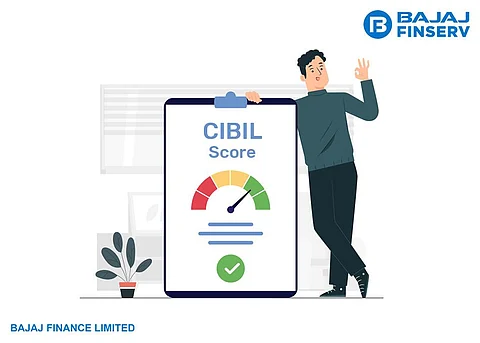

From time to time, you may get tempted to close out your old and unused credit card accounts.This is especially true if you have many active credit cards, as it can be quite challenging to handle the upkeep costs. Additionally, it can be cumbersome to track payments, due bills and other charges. As such, closing a credit card may come across as an easy solution to maintain your credit health. However, there are repercussions to such decisions, and these relate to your credit score.
Generally, when you close a credit card account, your credit scoreis likely to experience a dip. There are several reasons that can trigger this, but there is a right way to go about it and minimise the impact. To know more about the different things to consider to keep your credit score healthy when closing credit card accounts, read on.
Assess the impact on your credit utilisation ratio
If you have maintained a credit card account for a while, chances are that you have a high limit on it. This limit contributes to your total credit limit, and this impacts your credit utilisation ratio. Remember, your credit utilisation ratio influences your credit score, and having a high ratio will cause a dip. Naturally, before you close a credit card account, assess your current credit usage and the limit assigned to that account.
If your credit utilisation ratio increases past 30%, avoid closing accounts with a high limit until you have lowered your utilisation.Remember, closing a credit card account will lower the total credit limit, and so you must make the appropriate adjustments to keep your credit score from dipping.
Clear existing credit balance
To close a credit card account, you must have no outstanding payments on that account. Lenders will not approve requests to close accounts with due payments and unpaid credit will lower your score. So, if you want to close a credit card and safeguard your credit score, check if there are any outstanding charges or payments left. Here, you have the option to use another credit instrument to consolidate any outstanding payments or you can prepay the amount with your savings.
Besides these payments, check if there are any fees or additional charges. In many instances, membership fees, bounce charges, and other such costs can get missed, and these add to the overdue amount over time.
Inform the lender about your decision
Contact your lender to raise a request about closing a credit card. This is not a quick process and may take a few days. Your lender may try to persuade you to reconsider this decision by offering several benefits like lower interest rates and rewards on your credit account. If you have assessed closing a credit card is the right choice, ensure that there are no overdue payments on the account. To do this you can show a zero credit balance and confirm with your lender. Double-checkwith the creditor after closing the account to avoid any sort of miscommunication or issues down the line. Doing this can assure that your lender does not charge any annual charges and has registered the cancellation request.
Choose to close newer credit cards accounts
Credit history is a key factor that influences your credit score. It can help you maintain your credit health as it indicates good credit behaviour on your financial profile. For example, when you have just one credit card, closing it is not a smart choice as it reflects your repayment history. Similarly, if you have too many active cards and want to close a few, choose the newer credit cards. Your older cards can showcase a repayment track record, and this adds to your credit score.
Armed with this information, make smart decisions based on your financial situation. Remember to check your credit report if you opt for closing a credit card. Ensure that the account reflects as closed. The records of good history on a closed account will remain intact on the credit report for 10 years. This may positively influence your credit information over time.
To track your report, you can check your CIBIL score for free on the Bajaj Finserv website. Fill the simple form to access your credit score and get a customised Credit Health reporttoo. With this information, you can proactively evaluate and work on maintaining an excellent credit score.
*Terms and conditions apply
Disclaimer: This content is part of a marketing initiative. No TNIE Group journalist is involved in the creation of this content.